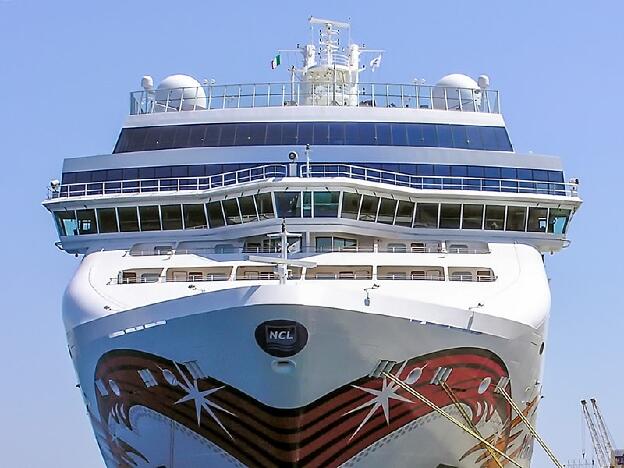Norwegian Jewel (NCL) - Exterior view of the brigdge on deck 11
Norwegian Jewel (NCL) - Exterior view of the brigdge on deck 11
Exterior view of the bridge of the Norwegian Jewel of the shipping company Norwegian Cruise Line (NCL)
The bridge on a ship is an elevated and enclosed area dedicated to overseeing the vessel's navigation and control. It functions as a command center where ship officers and crew members manage various aspects of the ship's journey. One of the primary purposes of the bridge is navigation. It houses essential navigation tools such as radar, GPS systems, gyrocompasses, and nautical charts. These instruments enable accurate course plotting and safe maneuvering of the ship.
Communication equipment is also a crucial feature of the bridge. Radios, satellite communication systems, and maritime communication protocols are used to maintain contact with other ships, ports, and maritime authorities. The controls for steering the ship are typically located on the bridge. This is where the helmsman operates the ship's steering mechanisms under the guidance of the officer in charge.
Monitoring systems on the bridge provide real-time information about the ship's speed, heading, engine status, fuel levels, and other critical parameters. Safety is of paramount importance on the bridge. It is equipped with alarms, fire detection systems, and emergency equipment to ensure the well-being of the crew and the ship. In emergencies, distress signals are sent from the bridge.
The bridge is also the command center of the ship. The ship's captain and navigation officers have their workstations there, overseeing the ship's overall operation and making important decisions. Visibility is a key design feature of the bridge. It is equipped with large windows to offer an unobstructed view of the surroundings, helping the crew spot potential obstacles and navigate effectively. During challenging maneuvers such as docking, departing from port, or navigating through narrow passages, the bridge crew plays a vital role in coordinating and executing precise actions.
In summary, the ship's bridge is a critical hub where navigation, communication, and control converge to ensure the safe and efficient movement of the vessel. It serves as the nerve center from which the ship's officers and crew manage various operations and respond to changing conditions while at sea.
In June 2006, cruise on the Western Mediterranean with the itinerary: Barcelona (Spain) - Day at Sea - Messina (Italy) - Naples (Italy) - Civitavecchia (Italy) - Livorno (Italy) - Villefranche-sur-Mer (France) - Barcelona (Spain)
